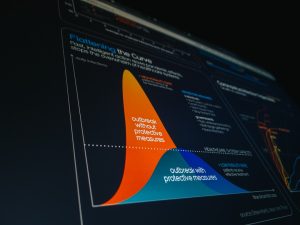
As cities continue to grow and residential demand expands, apartment management in 2025 has become more sophisticated, data-driven, and resident-focused than ever before. Whether you’re an experienced property manager or a new investor entering the multifamily housing sector, understanding the modern landscape of apartment management is essential for maintaining competitive, efficient, and safe communities.
In this article, we will cover key elements of apartment management in 2025, including the latest technology, operational strategies, tenant expectations, and compliance requirements.
1. Embracing Smart Technology
Technology is at the heart of modern apartment management. In 2025, almost every aspect of property operations has been digitally enhanced or automated. From leasing to maintenance, smart solutions improve both efficiency and tenant satisfaction.
- Smart Security: Biometric locks, AI-fueled surveillance systems, and mobile access control provide safer, more convenient security options.
- Energy Management Systems: IoT-connected thermostats, lighting, and appliances help reduce utility costs and carbon footprints.
- Automated Leasing and Maintenance: AI-driven chatbots, online leasing platforms, and predictive maintenance systems streamline communication and reduce service response time.

2. Data-Driven Decision Making
Property managers now have access to a wealth of data to guide strategic decisions in real-time. Advanced software tools aggregate information on rent trends, occupancy rates, tenant feedback, and financial performance.
Key metrics managed digitally include:
- Tenant retention rates
- Maintenance request turnaround time
- Energy consumption patterns
- Resident satisfaction scores
Data analytics not only improve internal performance but also help tailor amenities and services to the needs of specific demographics, such as young professionals, seniors, or remote workers.
3. Evolving Tenant Expectations
In 2025, residents expect more than just a place to live. They are looking for experience, community, and convenience. This shift in tenant expectations has reshaped how apartments are marketed, managed, and operated.
Trending amenities include:
- High-speed internet and coworking lounges for remote workers
- Package lockers and delivery-friendly setups for e-commerce convenience
- Pet-friendly facilities with grooming stations and parks
- Flexible leasing options and digital rent payment systems

Community-building events such as social gatherings, wellness classes, and sustainability initiatives are increasingly common as ways to boost tenant engagement and retention.
4. Compliance and Sustainability
Regulations around housing, sustainability, and data privacy have grown in complexity. Apartment managers and owners must now comply with both local and federal requirements regarding energy efficiency, tenant rights, and building codes.
Critical compliance areas:
- Green certifications such as ENERGY STAR or LEED are increasingly mandatory in many jurisdictions
- Data privacy laws require secure storage of tenant information, particularly with cloud-based systems
- Fair housing practices must be upheld through transparent rental qualifications and inclusive marketing
Failure to adhere to these regulatory expectations can lead to fines, lawsuits, or loss of business licenses, making compliance a top priority for any apartment manager in 2025.
5. Staff Training and Development
Managing a multifamily property now requires diverse skills in technology, communication, legal compliance, and financial management. As such, training and staff development play a key role in apartment operations.
Property management teams are increasingly investing in:
- Continuing education in rental law and smart building technologies
- Customer service and crisis management training
- Certifications from reputable institutions like IREM and NAA
In 2025, the most successful properties are those led by teams that stay informed and adaptable to industry shifts.
Conclusion
Apartment management in 2025 is more complex and opportunity-rich than ever before. With the right combination of technology, data, tenant-centric strategies, and compliance awareness, property managers can deliver exceptional living experiences while optimizing operations and profitability.
As the real estate landscape continues to evolve, staying ahead of the curve will be critical. Managers who invest in innovation, sustainability, and resident satisfaction will find themselves better positioned to thrive in an increasingly competitive market.






